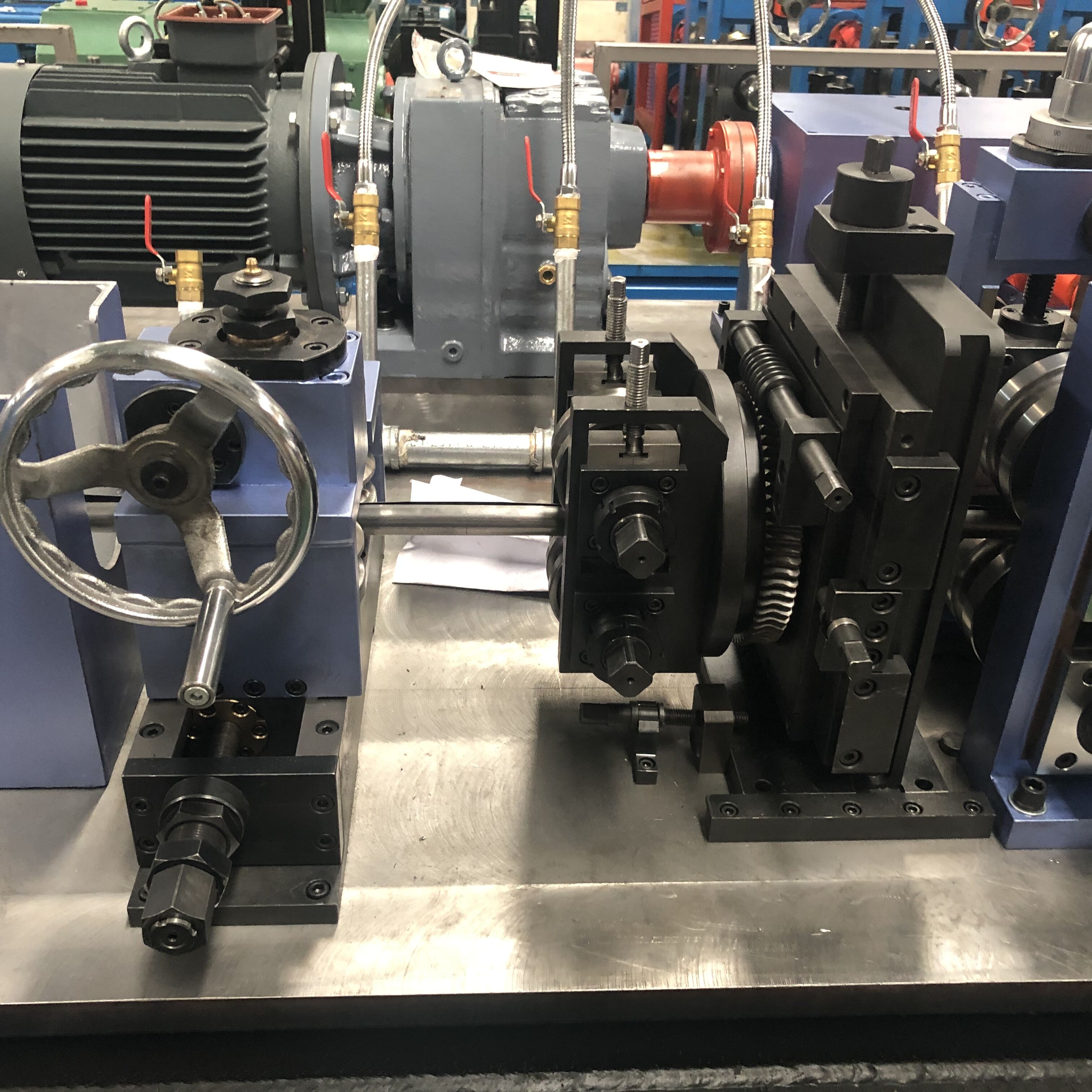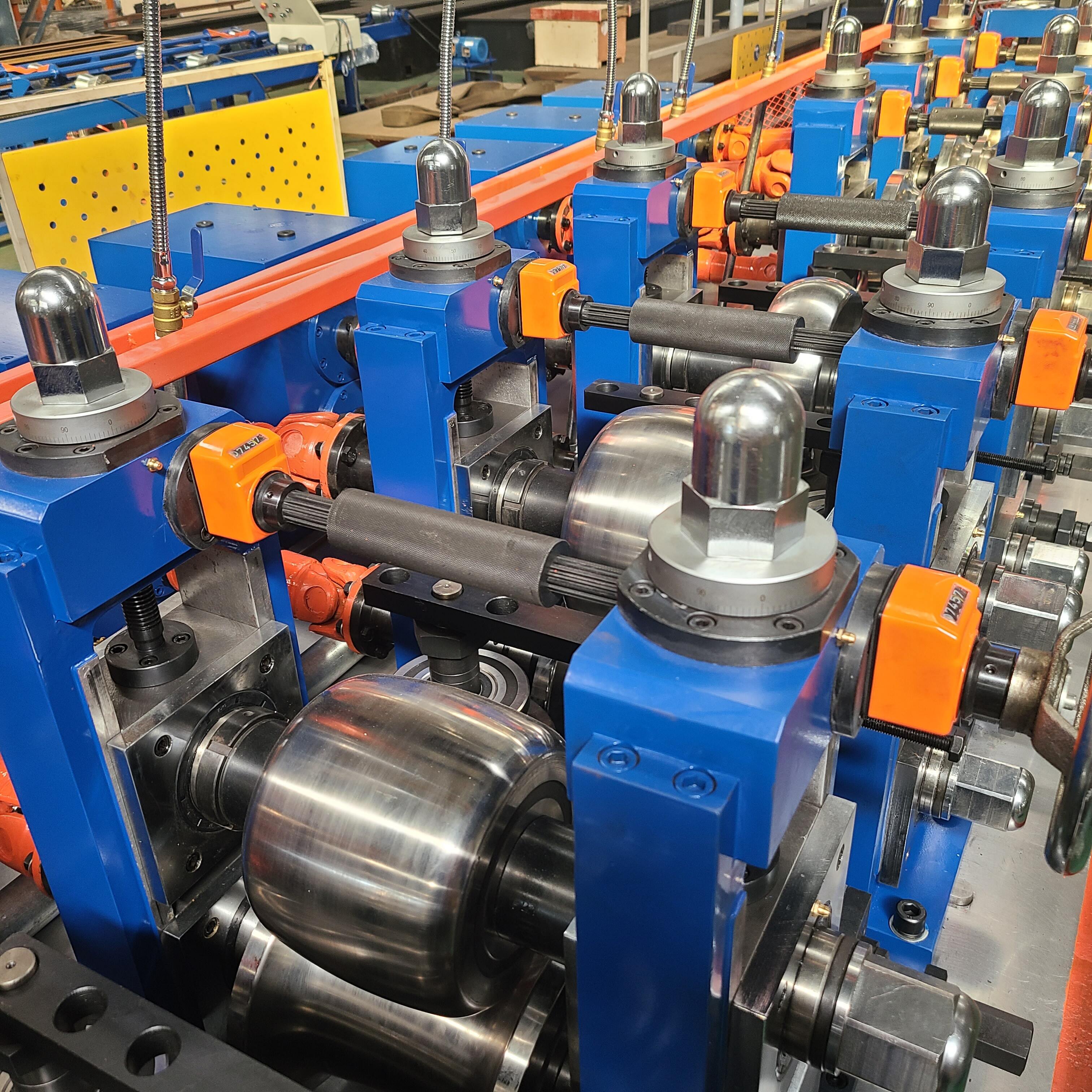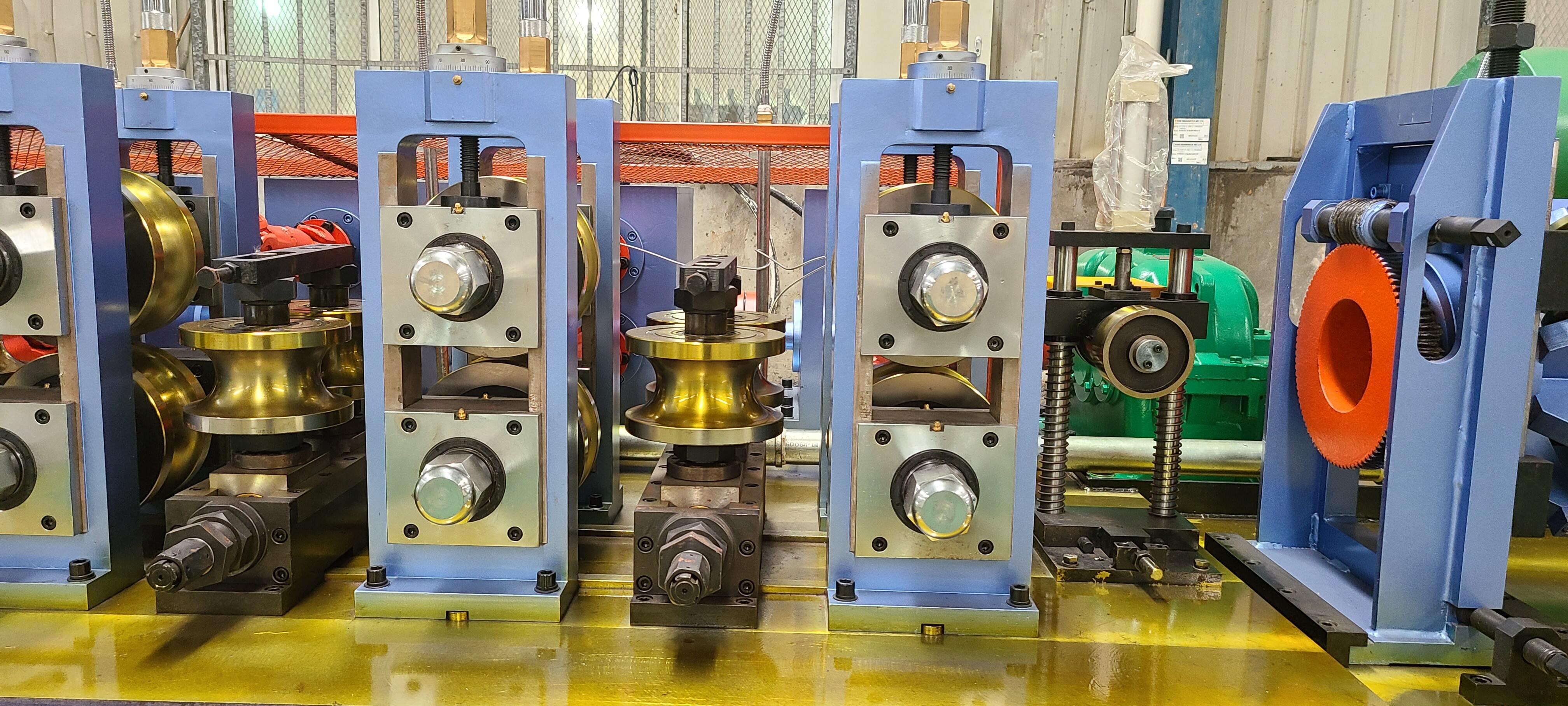rolvormende buis
Rolvorming van buise verteenwoordig 'n sofistikeerde vervaardigingsproses wat vlakke metaalstrepe in noukainig ingenieerdes buisvorms verander deur voortdurende boogie met 'n reeks rolstervels. Hierdie kontinue, hoë-effektiwiteitsproses skep buise met konsekwente kruissnede en uitstekende strukturele integriteit. Die tegnologie maak gebruik van gespesialiseerde rolle wat in volgorde gestasioneer word, elkeen geleidelik die metaal vorm totdat die gewenste buisprofiel bereik word. Hierdie buise vind wydverspreide toepassings oor verskeie bedrywe, van bou en motorvoertuie tot meubels en industriële toerusting. Die proses maak dit moontlik om sowel standaard- as skesprofiels te produseer, wat verskillende materialen insluit soos staal, aluminium en koper. Rolgevormde buise bied uitstekende dimensiekonntheid en oppervlakfinishing, wat hulle ideaal maak vir toepassings wat presiese spesifikasies vereis. Die vervaardigingsproses verseker uniforme wanddikte en handhaaf materiaaleienskappe deur die hele vormingsproses, wat produk onder uitstekende sterkte-gewig-verhoudinge lei. Moderne rolvormingstelsels inkorporeer gevorderde beheer- en monitoreersisteme om kwaliteitkonstante te handhaaf en materiaalverskoning te verminder, wat dit sowel ekonomies as omgewingsvriendelik voordeelagtig maak.


